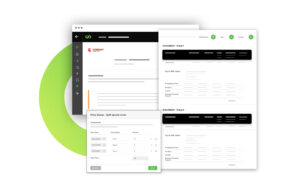Stop Training Reps on Product Rules—Let CPQ Do It For You

Reps Shouldn’t Memorize Product Rules—They Should Sell
If you’re constantly teaching reps what they can’t quote, you’ve got a tooling issue—not a training one. With CPQ product rule automation, reps quote faster, avoid errors, and learn configurations as they go. It’s real-time enablement that scales.
Why Reps Are Still Quoting Wrong—Even After Training
You’ve run the training.
You’ve shared the deck.
You’ve answered the same product rule question—again.
And reps still:
- Quote the wrong bundle
- Miss required add-ons
- Apply outdated pricing
- Ask Sales Ops for help on every edge case
It’s not because they’re careless.
It’s because they’re expected to memorize a complex product catalog with constantly changing rules.
That’s not scalable.
The Real Problem: You’re Training What the System Should Enforce
Enablement shouldn’t be about teaching reps how to avoid mistakes. It should be about empowering them to sell confidently.
But without guided tools, reps must:
- Interpret outdated cheat sheets
- Manually map configurations
- Rely on tribal knowledge
- Hope they didn’t miss something critical
And when errors happen:
- Quotes get flagged or rejected
- Sales Ops scrambles to fix
- Buyers get confused
- Deals lose momentum
The Fix: Guided Selling Built Into Your CPQ
A smart CPQ configurator replaces product memorization with real-time guidance:
- Guided configuration paths help reps build valid deals step-by-step
- Invalid combinations are blocked automatically—no guesswork
- Add-ons, bundles, and pricing rules adjust based on customer segment, use case, or region
- Product logic updates in the background, so reps always work with the latest rules
The result?
Reps learn by quoting, not by cramming.
What Enablement and Sales Ops Gain
- Faster ramp time for new reps—fewer weeks in onboarding
- Fewer quoting errors, and less back-and-forth with Sales Ops
- More confidence across the team, especially among junior sellers
- Consistent deal structures aligned with product strategy
- More time spent selling, less time troubleshooting configurations
You move from “what not to quote” to “here’s the best-fit deal—go sell it.”
Manual Rule Training vs CPQ Product Rule Automation
Feature | Manual Product Training | CPQ Product Rule Automation |
Rule Retention | Low—easy to forget post-onboarding | High—taught through real-time quoting |
Quote Accuracy | Inconsistent across reps | Consistently aligned to product rules |
Support Load | High—Sales Ops constantly involved | Low—system blocks and suggests |
Onboarding Time | Longer and repetitive | Shorter, with in-workflow learning |
Deal Quality | Risk of misquoted bundles | Validated, strategic configurations |
Frequently Asked Questions (FAQs)
Why do reps struggle with quoting even after training?
Because product rules are complex, constantly changing, and hard to retain—especially under pressure to move fast.
What does a CPQ configurator do?
It embeds product logic into the quoting process, guiding reps to valid configurations and blocking invalid ones automatically.
Does this replace onboarding?
No—but it reduces the load. Reps learn by doing and retain more because the system reinforces correct behavior in real time.
Can we update rules without retraining reps?
Yes. Updates to product logic flow directly into the CPQ, so quotes always reflect the latest structure—without retraining.
What impact does this have on Sales Ops?
Huge. Fewer support tickets, fewer corrections, and more scalable quoting across the team.
Ready to fix leaks, speed up quoting, and unlock hidden revenue?
Use our RoI Calculator to see where your business can grow next.





